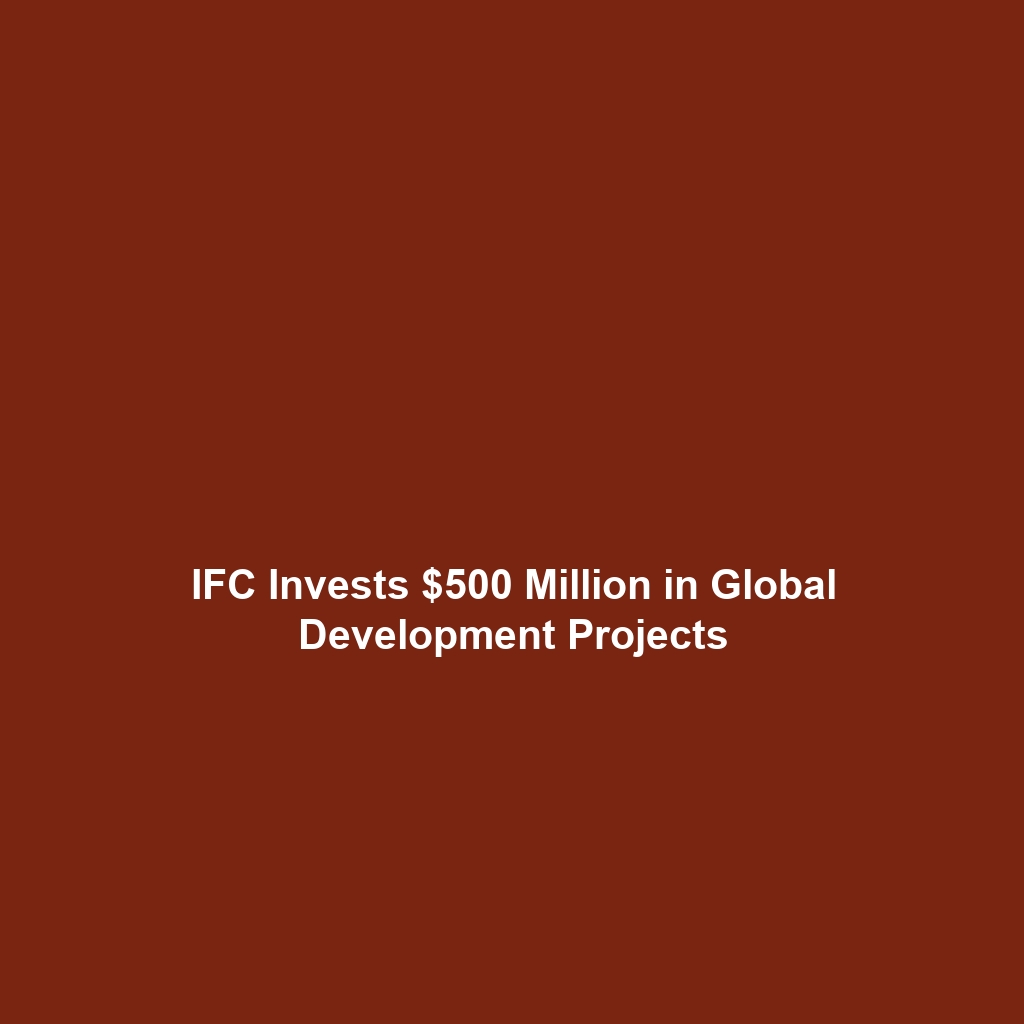Your cart is currently empty!
Tag: infrastructure

Gautam Adani Charged with Bribery and Fraud
Gautam Adani Charged with Bribery and Fraud
Gautam Adani Charged with Bribery and Fraud
In a significant legal development, Indian billionaire Gautam Adani has been charged with bribery and fraud by U.S. authorities. The allegations involve $265 million purportedly paid in bribes to secure contracts for solar energy projects. The charges were filed in a New York court, marking a critical moment in the ongoing scrutiny of Adani’s business practices.
The Charges Against Gautam Adani
Gautam Adani, founder and chairman of the Adani Group, is facing serious allegations involving illicit payments in connection with contracts related to solar energy projects in India. The U.S. Department of Justice has initiated legal proceedings that assert Adani and several associates engaged in a systematic scheme to bribe foreign officials to obtain contracts and facilitate operations in the renewable energy sector.
According to the charges, Adani allegedly authorized significant sums of money to be funneled through intermediaries to government officials in India. These payments were purportedly aimed at ensuring the company secured lucrative contracts in the burgeoning solar energy market, with investors expressing concern over the legality and ethics of such practices.
Background on Adani Group and Solar Energy
The Adani Group has rapidly ascended to prominence as one of India’s largest conglomerates, with interests spanning across various sectors, including energy, infrastructure, and logistics. In recent years, the group has made substantial investments in renewable energy, particularly solar. By 2022, it had become one of the world’s largest solar power producers.
However, rapid growth has accompanied scrutiny. Critics of the Adani Group have raised questions regarding transparency and compliance with international laws. The allegations of bribery come at a time when the global shift towards renewable energy is under intense examination, highlighting the complexities of navigating regulatory frameworks in emerging markets.
Legal Implications and Responses
The legal charges against Gautam Adani could have far-reaching implications for both the Adani Group and the broader business climate in India. If found guilty, Adani could face severe financial penalties and possible imprisonment. This situation also poses reputational risks for the Adani Group, which may impact investor confidence and future contracts.
In response to the charges, an Adani Group spokesperson stated, “The allegations are completely baseless and represent a mischaracterization of the company’s prudent business practices. We are fully committed to conducting our business in compliance with the law and with the highest ethical standards.” The statement reflects the firm’s intention to vigorously defend against the charges, which they believe will be proven unfounded.
Reactions from Experts and Market Analysts
Market analysts are closely watching the developments surrounding Adani. “The ramifications of these charges are significant not only for the Adani Group but for the perception of corporate governance in India,” noted financial analyst Ravi Kumar. He stresses that such allegations could lead to increased scrutiny of other Indian conglomerates, as investors seek clarity regarding regulatory compliance in the country.
Additionally, the ongoing investigations may have an adverse effect on foreign direct investment in India’s renewable energy sector. International investors often weigh legal stability and corporate integrity when committing resources to emerging markets. Concerns about governance could deter investment, which India is trying to attract to bolster its energy infrastructure.
The Broader Context of Corruption in India
The charges against Adani are emblematic of broader concerns surrounding corruption and governance within India’s political and business landscape. While India has made strides in combating corruption, challenges persist, particularly in large-scale infrastructure projects that often involve significant government interaction.
Experts suggest that cases like that of Adani are crucial for initiating discussions about reform in corporate governance and transparency. “This situation highlights the need for comprehensive reforms to curtail corruption and enhance accountability among corporate entities in India,” commented political analyst Anjali Mehta. The resolution of these legal challenges may determine the future of business ethics in the region.
Conclusion
The legal proceedings against Gautam Adani mark a pivotal point in the scrutiny of corporate governance among India’s business elite. With serious allegations of bribery and fraud now in the spotlight, the implications for Adani and the broader economic environment in India are profound. Investors, analysts, and policymakers will be keenly observing the outcome of this case, which may have lasting effects on how corporate entities operate within the framework of India’s regulatory landscape.
As the situation develops, further insights and updates will be critical for stakeholders invested in India’s economic future and its burgeoning renewable energy sector.

IFC Invests $500 Million in Global Development Projects
IFC Invests $500 Million in Global Development Projects
IFC Invests $500 Million in Global Development Projects
The International Finance Corporation (IFC), a member of the World Bank Group, has announced a substantial investment of $500 million aimed at supporting infrastructure and sustainability projects across the globe. This strategic move is designed to bolster economic growth and enhance environmental sustainability in developing nations, reflecting a renewed commitment to private-sector development in key sectors.
Overview of the Investment Initiative
The IFC’s recent funding initiative comes as part of a broader strategy to bridge the financing gap in critical infrastructure projects around the world. The organization has identified a pressing need for investment, particularly in emerging markets, where infrastructural deficiencies can hinder economic progress and resilience against climate change.
According to the IFC, these funds will be allocated to a variety of projects focusing on sectors such as renewable energy, urban development, and transportation. This diversified approach is aimed at not only stimulating economic growth but also fostering sustainable practices that align with the United Nations Sustainable Development Goals (SDGs).
Addressing Global Challenges
The global landscape is facing numerous challenges, including poverty, climate change, and rapid urbanization. The World Bank Group estimates that developing countries need approximately $3.7 trillion annually to meet their development needs, which underscores the significance of the IFC’s investment.
“We believe that private sector investment is crucial for driving development and improving livelihoods in developing nations,” said Makhtar Diop, Managing Director of the IFC. “This $500 million funding is designed to catalyze additional investment and create opportunities for sustainable growth.”
The Importance of Sustainable Development
Sustainable development is at the core of the IFC’s mission. The organization’s investments are guided by principles that prioritize environmental protection, social equity, and economic viability. By channeling funds toward projects like renewable energy and efficient transportation systems, the IFC aims to foster a green economy that benefits communities while combating climate change.
The recent investment is anticipated to contribute significantly to several green infrastructure endeavors, which are essential in reducing reliance on fossil fuels and minimizing environmental degradation. Projects that harness solar, wind, and hydroelectric power are among those that may benefit from this infusion of capital.
Targeted Areas for Investment
The IFC has outlined specific regions and sectors that will be targeted for investment with the new funding. These include:
- Renewable Energy: Increasing funding for solar, wind, and hydro projects to ensure a transition to clean energy sources.
- Urban Development: Enhancing urban infrastructure through sustainable building practices and improving public transportation.
- Agriculture: Supporting agricultural initiatives that focus on sustainable farming techniques and improving food security.
By prioritizing these areas, the IFC aims to not only create jobs but also improve living standards in communities across various regions, especially in sub-Saharan Africa and South Asia, which are among the most affected by infrastructural deficits.
Expected Outcomes of the Initiative
The IFC anticipates that this investment will lead to significant socio-economic benefits, including job creation, economic diversification, and improved access to essential services. Additionally, the funding is expected to leverage additional private-sector investments, magnifying the overall impact and effectiveness of the deployed capital.
Experts believe that the IFC’s investment is timely and crucial. “This kind of funding is important for creating an enabling environment for private investment in infrastructure, which is fundamental for economic development,” noted Dr. Rebecca M. McDonald, an economist specializing in development finance.
Conclusion
The International Finance Corporation’s $500 million investment marks a significant step toward addressing pressing global needs in infrastructure and sustainability. By focusing on clean energy, urban development, and agriculture, the IFC is setting a precedent for sustainable growth in developing countries.
As the world grapples with the dual challenges of economic recovery and climate action, the role of organizations like the IFC in mobilizing resources for development projects becomes increasingly vital. This initiative not only reflects a commitment to sustainable principles but also highlights the critical need for innovative funding solutions in addressing global challenges.

